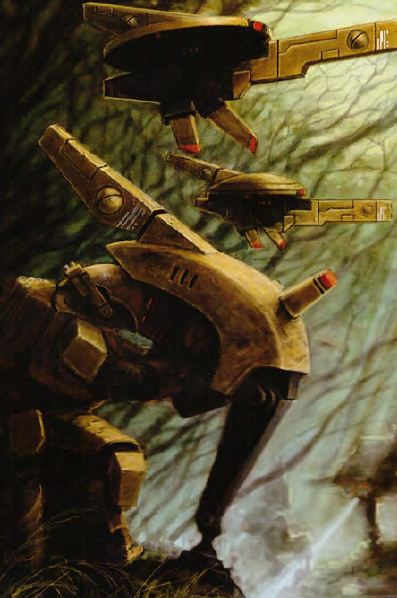
Over the past week or so, there has been a lot of talk about an incident of cheating at a recent Grand Tournament. I’m not going to discuss the specifics of that case in this article. If you’d like to know what happened, there are plenty of ways to find out online.
Instead, I’m going to talk about a broad issue in the game that applies regardless of the level of play and regardless of who is playing, and I’m going to briefly talk about what this means for the game. Or, at least, how I look at it.
Here’s the issue: 40k is, by nature, an inaccurate game.
What do I mean by this? Because 40k is played with tape measures and models, measuring distance between one point and another — be it from a Space Marine to a Kabalite Warrior, a Devilfish to an objective, and so on — is virtually impossible to do with 100 percent accuracy.
Take even the most basic of measurements. We’re on planet bowling ball. There is no terrain whatsoever. I declare a charge with my Space Marine Captain, a single model, into my opponent’s Autarch, a single model. There is roughly six inches between these two models, but we would like to know the exact distance so I know what I need on my charge roll in order to successfully make the charge. So far, so basic 40k.
I place one end of the tape measure just next to my Captain, and I place the extended end of the tape measure just next to the Autarch. Here’s the tricky bit.
Is the distance 6 inches exactly? Is it 5.9 inches? 5.8? Reasonable people could disagree about this. It’s actually very difficult to get the exact figure.
Of course, in this case, it doesn’t matter. As long as we agree that the distance isn’t greater than 6 inches, I need to roll a 5 in order to make a successful charge.
This is the probably the most simple example of measuring distances in 40k, and most players probably couldn’t get it quite right. Most players would get pretty close. That’s for sure. But very few players would get it exactly correct. And this isn’t surprising at all. The tools that we use aren’t designed to give us exact measurements. They’re designed to give us measurements that are good enough.
Of course, this is perfectly fine for 40k. The technology required to accurately measure distance between two points on a 40k battlefield would render the game unplayable. We make a compromise in order to play the game.
We can get pretty close in the example that I describe above, but that is a very simple example used to illustrate a point. 40k is seldom so easy.
Indeed, a normal measurement in 40k involves one player leaning over the table slightly to hover his tape measure above so-and-so model in order to measure the distance to another model that could be goodness knows how many inches away.
What’s more, there’s going to be terrain in the way that players must be careful to avoid moving, as well as many other models both in between the two models in question and scattered around the board.
You get the picture. 40k is inherently inaccurate.

Most players, then, will have made inaccurate measurements. These might have been game-winning or they might not have mattered much at all, but it has almost certainly happened to everyone.
And that’s okay. This is simply a part of the game. Indeed, it’s a part of any game that involves measuring distance between two points.
I would argue, then, that players should cut one another some slack. If it’s not quite clear whether so-and-so model is in range of its target in the shooting phase, it’s gentlemanly to allow that model to shoot. If it’s not quite clear whether so-and-so unit can make that charge move with the number rolled, it’s gentlemanly to allow that unit to charge.
And it’s here that we come to a fundamental aspect of 40k, and something that makes it distinctly different from many other hobbies and games.
Competitive 40k relies on both players respecting one another and respecting the game. Both players will know that they could add a quarter inch here or take off a half inch there, but most players don’t do so.
Most players know that 40k is played with a certain unspoken agreement that both parties involved will endeavour to play as accurately as possible. As we know, it’s impossible to play with 100 percent accuracy, and mistakes will inevitably happen, but intent is absolutely paramount. If both players play with good intent, the game is in a good place.
Granted, there is a small percentage of players who will not play with good intent. There is a small percentage of players will who try to deceive their opponent in order to gain an advantage. Unfortunately, over the past week we’ve all been reading about a player who, as far as the evidence shows, falls into this category.
And this is going to happen once in a while. Any game in which it is possible to cheat will attract, to one degree or another, players who cheat. Most players don’t, but a small number do.
But this shouldn’t be cause for concern. It’s simply a fact of life. Humans are in a fallen state. Some people are good; some people are bad; most are somewhere in between.
Fortunately, there’s a pretty simple way to deal with players who cheat: don’t play with them.
This applies at a local gaming store, of course, but it doesn’t apply as well when it comes to tournaments. When players go to events, they are paired with whoever they are paired with.
But, as we have seen this week, tournament organisers have processes in place to deal with players who play in a dishonest manner. Is it perfect system? Of course not. But it’s the one that we have, and, all things considered, I think that it works pretty well.
I’m going to finish with this: I believe in forgiveness. If an individual, regardless of context, chooses to change their behaviour and show regret for their actions, I think that we should allow for second chances. But the opposite is also true. If an individual does not show contrition, then forgiveness shouldn’t be forthcoming.
40k means a lot to a lot of people, and I’m certainly one of those people. All things considered, I think that the 40k community is a great place to be with many great people that make the game what it is.
And remember, Frontline Gaming sells gaming products at a discount, every day in their webcart!




This message is all well and good, no game system is perfect and requires the players to display mutual respect.
But the game we’re dancing around is the one player, TJ dumb enough needing to cheat even on stream and got caught Lannigan, showing disrespect and no good will towards his opponent. People like that are a blight on a community and a clear example there are those that will not be respectful to you so if things seem weird or dice are not adding up, call a judge over to watch them. There are players that will pull every sneaky trick to get ahead and these players we need to exile.
LOL, please tell me this was just really well-done satire.
It deserves a spot of honor with that “in defense of scalpers” article.
lol
Hey, we believe in free press here, buster, (I mean, sheesh, we publish your articles =P) if an author has a different take on something, so long as it remains family friendly, we don’t try and stifle their opinions.
Hahaha, solid
There is a difference between inaccuracies and just telling someone a 1 is a 6. Repeatedly.
There is a difference between mixing up a rule and knowingly misleading your opponent.
There is a difference between your opinion and what everyone saw on video.
White knighting for cheaters only encourages them.
Stop being part of the problem.
I think that is the key, there isn’t much wiggle room when someone is saying a die roll is a different number, lol. The game is inaccurate when it comes to movement but things like dice and such there really isn’t an excuse.
Accepting that there are inaccuracies is part of the game. True. We should all be chill about that.
Related anecdote: People endlessly argued templates and wasted ages maintaining a perfect 2″ spacing in previous editions, and it was all rather pointless as, as you point out, 40k is inherently inaccurate.
BUT there is a very VERY distinct difference between unconsciously being inaccurate and deliberately manipulating or taking advantage of that fact to your advantage.
Furthermore, the solution of “Don’t Just Play Them” is a rather lazy approach and doesn’t positively contribute or help others. If I just don’t play a cheater, then I have done nothing to spare his future opponents from being taken advantage of. Sure, they may eventually burn out of people in a local area, but lets be realistic, some of these notable and notorious players travel far and wide for events…
While I like this response, I am not a fan of this person’s name…
lol
This is not a new problem – wargaming has been a hobby/training method for Kings and generals for centuries.
Competitive 40K is only a small part of the GW Hobby. And an even smaller part of the world’s wargaming hobby. Never before though has been under such scrutiny as games are televised WITHOUT the To/Head referee in the room.
Wargaming does rely on respect and sportsmanship. Not yellow cards and a red card from an unofficial source. It’s a hobby and any-one calling themself a professional should be treated in the same way as a 1970s rugby union player – made to go and play a different game.
Competitive 40k may be a small part of the GW Hobby, but it certainly seems to be a BIG thorn in your ass.
10,000 players = small fry – there are more pensioners playing lawn bowls in Essex, UK (pop of 1.35 millions) than play W40k competitively globally.
As such lets put some perspective on our HOBBY where we play games with TOY soldiers. Stop the nonsense about professional players; or cheats coaching. If mugs want to throw their money away fair enough – but don’t call them coaches when they are NOT trained and lack any credibility.
Oh Robby baby, you always quote the ITC numbers low, lol.
2019 we had over 20,000 unique participants, the rate of growth was pretty astounding actually, the 10k you have been quoting for like what, 3-4 years or however long you’ve been coming here to beat the same drum? That was a while ago man. And again, that’s not ALL of the competitive players, lol, we have yet to achieve 100% market penetration but I am flattered that you believe we have =)
It looks to me like some of the other comments have missed or misinterpreted what this article is saying.
Applying judgement is sometimes necessary and can lead to honest mistakes. That’s point one. The author is obviously trying to distinguish an honest mistake from deliberate deception – that’s point 2. It is quite a leap for a reader to say the author is putting the guy from last week in the “honest mistakes” camp. That is not what the article says. They clearly say that the evidence so far is that the guy from last week had bad intent, and deceived his opponent, and that this is a problem. The writer is not trying to “white knight” for that person at all. Everyone is entitled to their own view on the right way to deal with cheats. But, to suggest that this article defends cheating is just silly.
Wasn’t this article mainly about honest players being entitled to the benefit of the doubt if they make a mistake in good faith?
Yeah, that is exactly it. His point is that the game is hard to keep accurate due to the nature of how models move around.
I agree with your take but man it’s a lot of words for:
This game is inherently inaccurate, even the easiest parts are easy to stuff up. We’re all bound to mistakes and probably have.
Let’s not apply our current fury at one one person to all people as the circumstances matter.
Even though the guy screwed up remember that people can change so shouldn’t be ostracised forever.
Again, I think it’s all fair points but can be made a bit more succinctly which might also lessen confused reception